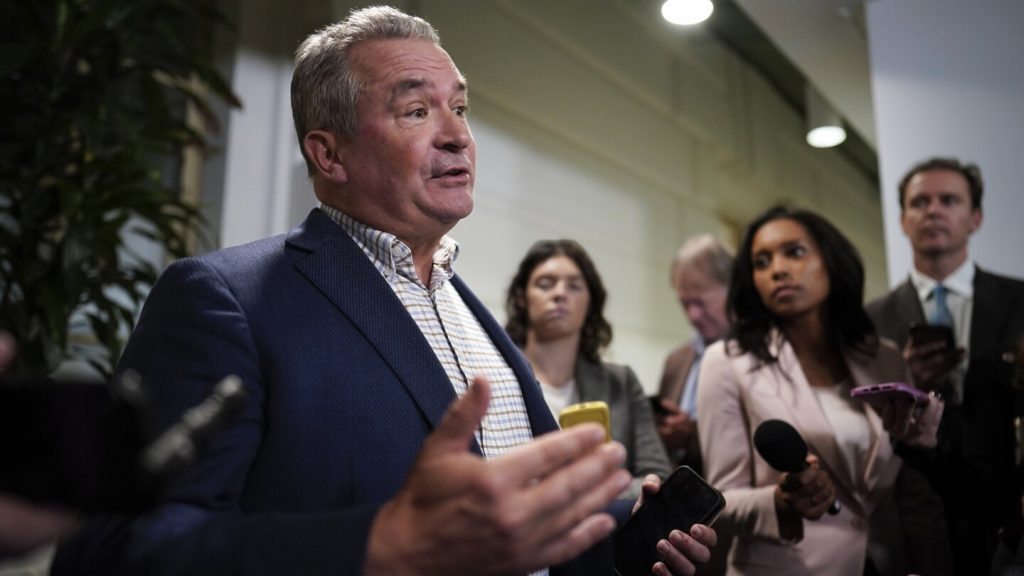In one of the most closely watched congressional races this year, U.S. Rep. Don Bacon of Nebraska is facing a primary challenge from a fellow Republican. The state Republican Party, now controlled by Trump loyalists, has refused to endorse any of the Republican incumbents holding congressional seats in the state. This includes incumbent U.S. Senator Pete Ricketts and Rep. Adrian Smith, who represents the rural 3rd Congressional District. The lack of endorsements has caused tension within the party and raised questions about the direction of the Nebraska GOP.
The rejection by the state party is a reflection of the divide between Trump loyalists and establishment Republicans within the party. The incumbents who were not endorsed have solid conservative records but have been snubbed in favor of primary challengers. The refusal to endorse incumbents like Bacon, who represents Omaha, has put a spotlight on the intra-party conflicts in Nebraska. Political analysts are questioning the wisdom of such divisions within the party, especially in an election year.
Bacon’s primary challenger, Dan Frei, has positioned himself as more conservative than the incumbent. Despite the lack of party endorsement, Bacon remains confident in his ability to retain the seat, emphasizing his record of bipartisan cooperation. Other incumbents like U.S. Sen. Deb Fischer and Rep. Mike Flood are also facing primary challenges from candidates who received the state party’s endorsement. The challenges highlight the ongoing battle for control of the Nebraska GOP and the future direction of the party.
The state party’s decision not to endorse the Republican incumbents has been met with criticism from some party members. Former party officials have criticized the current leadership for being too closely aligned with Trump and straying from the party’s original goals. The current political director of the state GOP defended the endorsements, citing a commitment to conservative principles and the Constitution. The lack of endorsement for incumbents has raised concerns about the party’s ability to unite and effectively support candidates in the upcoming election.
The Nebraska GOP’s endorsement of primary challengers and refusal to endorse Republican incumbents reflects a broader struggle within the party over its identity and direction. The influence of Trump loyalists has led to a shift in party dynamics, with some members questioning the party’s priorities. As the primary election approaches, the outcome of these races will provide insight into the future of the Nebraska GOP and the broader implications for the Republican Party as a whole. The divisions within the party highlight the challenges of navigating the shifting political landscape and maintaining a united front in the face of internal discord.


